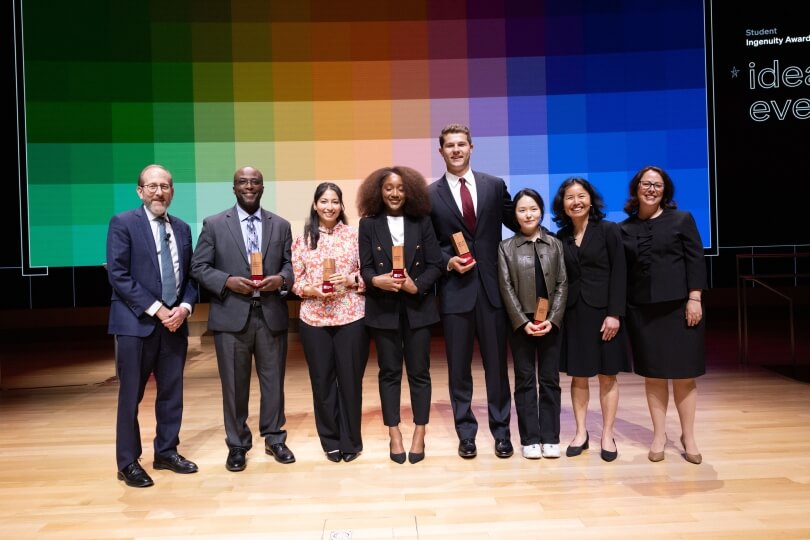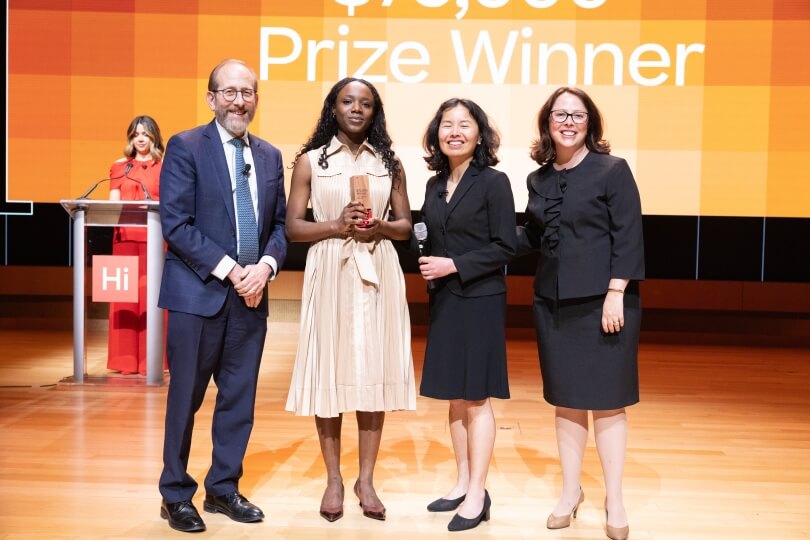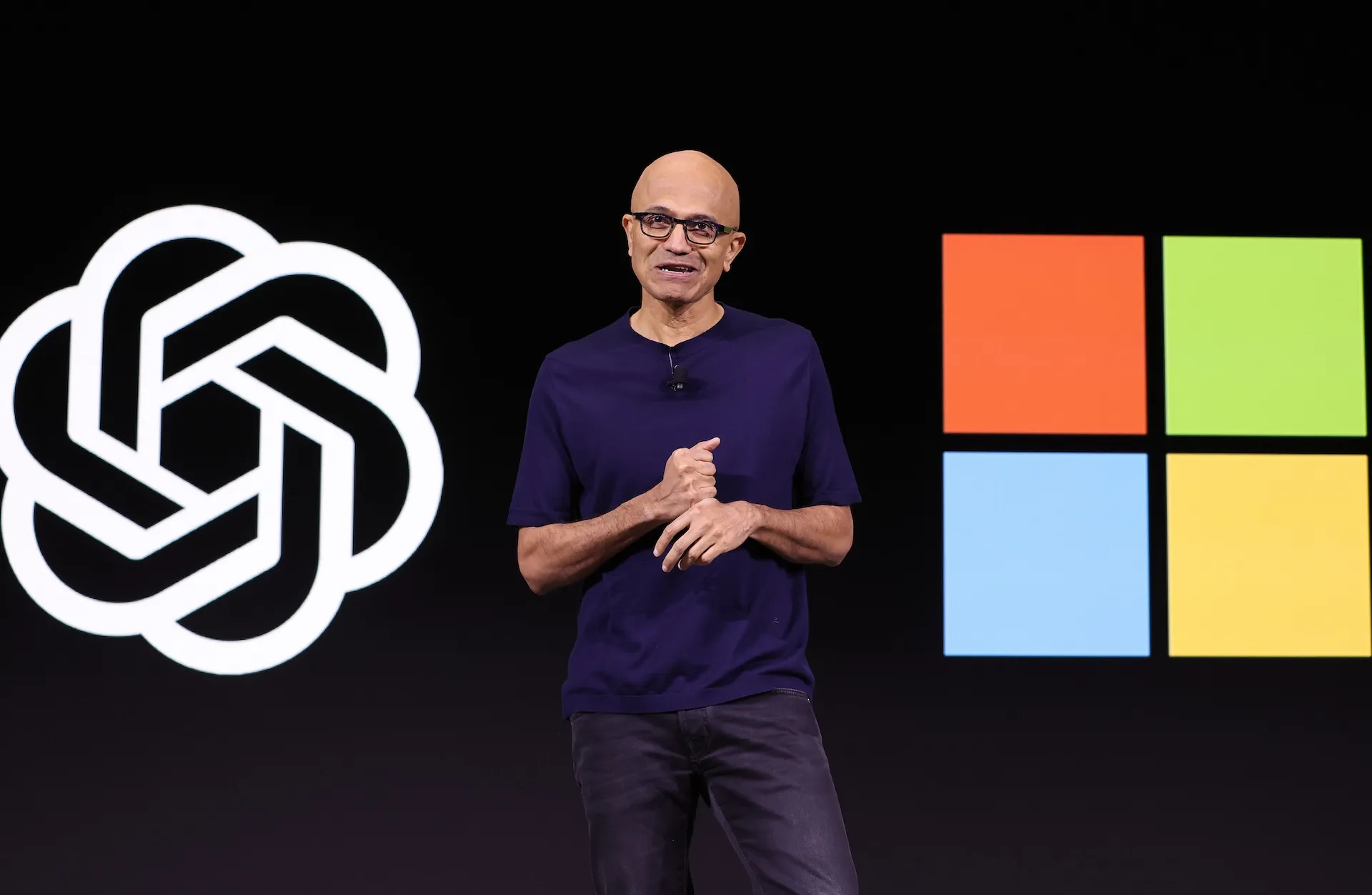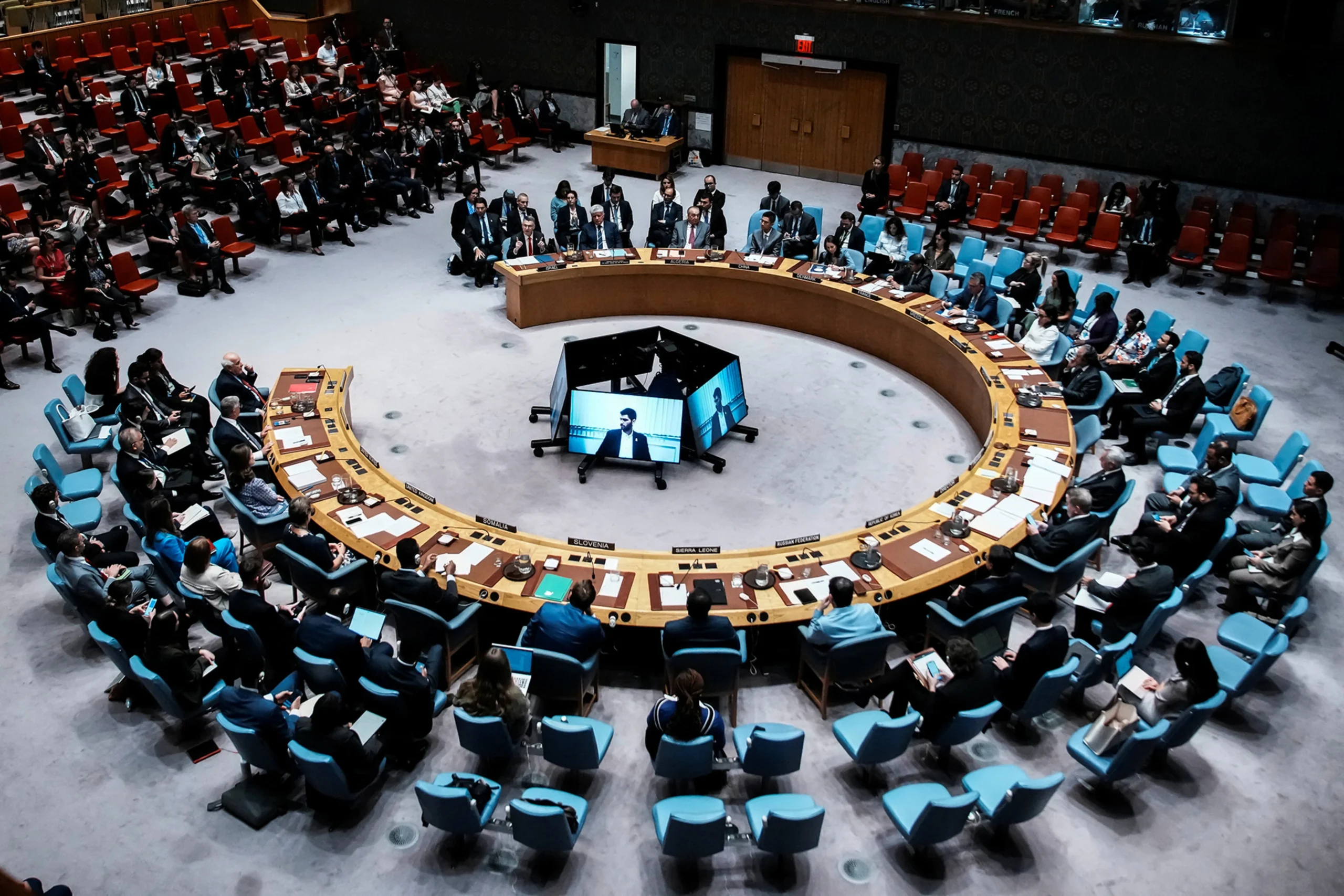Cambridge, MA — Two Nigerian graduates from Harvard University, Yinka Ogunbiyi, MS/MBA ’23, and David Afolabi, MBA ’23, have captured the grand prize at the 2025 President’s Innovation Challenge with their groundbreaking automated hair-braiding device, Halo Braid, taking home $75,000 in the Alumni & Affiliates Open track.
The victory, announced at Harvard Business School’s Klarman Hall, marks a triumphant return for Ogunbiyi, who had previously received an Ingenuity Award for early-stage startups at the same competition in 2023. This time, the Nigerian entrepreneurs claimed the top prize, organized by the Harvard Innovation Labs and funded by the Bertarelli Foundation.
Revolutionary Technology Meets Cultural Heritage
Halo Braid is an automated hair-braiding device that uses machine learning to dramatically reduce braiding time while ensuring professional-quality results. The innovation addresses a critical need in the hair care industry, particularly for African hairstyles that traditionally require hours of meticulous manual work.
“Finding salons and stylists hasn’t been a problem, because this is so meaningful to them, and the idea of braiding in half the time, let alone minutes, is groundbreaking,” said Ogunbiyi, who co-founded the company with fellow Nigerian David Afolabi. “However, designing a device that works has been really tough. In the past 18 months, we’ve built 450 prototype iterations. The tricky thing is creating a braid, doing it on a human’s head, and doing it with hair, which is one of the hardest things to work with.”
Impact on the Hair Care Industry
The technology promises to transform the professional hair braiding sector by enabling stylists to significantly increase the number of clients they can serve in a day. Beyond economic benefits, Halo Braid also addresses a serious occupational health concern—reducing the physical fatigue and potential chronic pain conditions that many braiders develop over years of repetitive hand movements.
For the Nigerian entrepreneurs, the device represents more than just technological innovation; it’s a celebration of African beauty culture made more accessible through cutting-edge engineering.
A Journey of Persistence and Innovation
The path to success required extraordinary dedication. Over 18 months, Ogunbiyi and Afolabi built an astounding 450 prototype iterations, working through the complex challenges of replicating the delicate art of braiding with mechanical precision. Hair, as Ogunbiyi noted, is “one of the hardest things to work with,” requiring sophisticated sensors and algorithms to handle its varied textures and behaviors.
Both founders credit their Harvard education as instrumental to their success. “I don’t think Halo Braid would exist if we hadn’t been at HBS and SEAS,” Ogunbiyi said. “In terms of what we learned, who we met and ideas we were exposed to has shaped every decision that we’ve made at Halo Braid. It’s helped us avoid certain mistakes, or make mistakes and react to them more quickly.”
Afolabi, who earned his MBA from Harvard Business School, emphasized the value of Harvard’s dynamic environment. “The dynamism of being at HBS definitely allows people to react to situations that are evolving very quickly. We’ve seen a lot of changes in technology and beyond in the last few years. Being able to react to that and stay ahead of the curve has been very useful for us.”

Presidential Recognition
Harvard University President Alan M. Garber presented the award, celebrating the entrepreneurial spirit demonstrated by the competition’s participants.
“At a time when so much is uncertain, the possibility of redefining what’s possible is not only a springboard to your own achievements, but also a gift to our community, our nation and our world,” President Garber said. “Your willingness to pursue ideas, to take risks, and to carve new paths to excellence, reminds us all of the power of knowledge, and the importance and necessity of places like Harvard.”
Next Steps: From Prototype to Production
With the $75,000 grand prize, Ogunbiyi and Afolabi plan to open a hair salon in Boston to scale up testing of different braiding styles before launching full-scale manufacturing later in 2025. This testing phase will be crucial in refining the device’s capabilities across the diverse range of African and African-American hairstyles.
The Boston salon will serve as both a real-world laboratory and a showcase for potential investors and partners, demonstrating Halo Braid’s capabilities in a commercial setting.
Nigerian Excellence on the Global Stage
The success of these two Nigerian innovators adds to the growing recognition of African talent in global technology and entrepreneurship. Their achievement demonstrates how Nigerian entrepreneurs are not only competing on the world stage but leading innovation in sectors that deeply impact their communities.
Halo Braid joins a distinguished lineage of successful startups affiliated with Harvard’s John A. Paulson School of Engineering and Applied Sciences (SEAS). In 2024 alone, SEAS-affiliated startups EndoShunt, MesaQuantum, and Beaver Health all won grand prizes, while Penguin.ai claimed victory in 2023.
This year, coupled with three Ingenuity Awards, startups co-founded by students and alumni affiliated with SEAS took in over $83,000 in Bertarelli Foundation prize money, with Halo Braid’s Nigerian founders claiming the largest share.
A Vision for the Future
For Ogunbiyi and Afolabi, Halo Braid represents the intersection of technology, culture, and entrepreneurship. Their device doesn’t seek to replace the artistry of traditional braiders but rather to augment their capabilities and address the physical toll the profession takes on practitioners.
As they prepare to open their Boston testing salon and move toward commercial production, the Nigerian duo stands as an inspiration for African entrepreneurs worldwide—proof that with innovation, persistence, and cultural pride, it’s possible to build technology that honors tradition while advancing it into the future.
The victory at Harvard’s President’s Innovation Challenge is just the beginning for Halo Braid, and the world will be watching as these two Nigerian innovators continue to redefine what’s possible in the beauty technology space.




